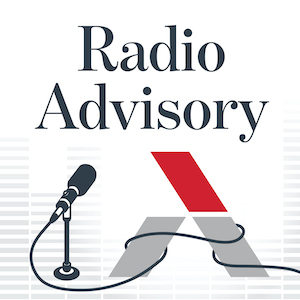Auto logout in seconds.
Continue LogoutCoordinated protests from Covid-19 skeptics have pushed many public health professionals out of their jobs, Kirk Siegler reports for NPR—and these skeptics may soon begin targeting these vacated positions for themselves.
Radio Advisory: Aaron Carroll on how clinicians can combat medical misinformation
Public health workers are being driven away
According to a New York Times analysis, more than 500 top health officials across the country have left their positions in the last 19 months amid prolonged stress and increasing animosity from the public.
For example, Diana Lachiondo, a former commissioner and health board officer in Ada County, Idaho, said an "angry mob" tried to break into a meeting of the state's Central Health District board after some members expressed support for preventive Covid-19 measures, such as extending mask mandates, Siegler reports. After that, several protesters also gathered outside of her house, screaming and banging pots.
Nick Lawyer, a PA and former county public health officer in Sanders County, Montana, faced "a coordinated campaign of harassment" after he wrote an op-ed encouraging people to get vaccinated against Covid-19 for several small-town newspapers. In September, an elderly local activist blamed Lawyer for his 82-year-old wife's death from Covid-19, calling him a "petty tyrant," Siegler writes.
"I never met her," Lawyer said. "I actually never provided her any care. But her husband blames me for her death saying that I put up barriers to her receiving unproven measures like ivermectin and other treatments."
Lawyer, ultimately was asked to resign after angry protestors disrupted several county commissioner meetings, Siegler writes.
The 'play book' for Covid-19 skeptics
According to Siegler, far-right groups started recruiting and organizing members in rural areas, where there is longstanding antigovernment sentiment, early on in the pandemic to protest against lockdowns that were being implemented.
"In some cases, people are much more afraid of their perceived government overreach than they are of the virus," Lachiondo said.
Travis McAdam, an extremism expert at the Montana Human Rights Network, said these groups have developed a "play book" on how to disrupt local meetings and antagonize public health officials, Siegler writes. "They're using bullying, intimidation, and harassment as political tools," McAdam said.
Part of what makes these groups so effective is their online organization and ability to quickly mobilize, Siegler writes. For instance, dark money groups have made training and social media tools readily available online, enabling organizers to quickly alert activists about new meetings or protests through text alerts or Facebook groups.
Now, some groups are changing their strategies, McAdam said. Instead of just organizing protests, certain groups have moved toward running for political office or trying to gain positions on health boards and other local organizations, Siegler writes.
Because of this, Lachiondo said she is worried qualified people will no longer want to serve in public health positions. "That is incredibly sad but also scary because then you're left with, who does step up and what are their aims and motivations if they aren't altruistic," she said.
In addition, Lawyer said the anti-science and anti-expert sentiment he was currently seeing in Montana was "chilling," Siegler writes. "However genuine in the effort to preserve individual choice and individual right, when we politicize and marginalize expert opinion, that will certainly further push us down the road of fascism," he said. (Siegler, NPR, 10/20)
Listen to the Radio Advisory episode
Medical misinformation has been a significant problem for a long time, but amid the Covid-19 pandemic, the problem has become even more widespread. In this episode, host Rachel Woods sits down with Dr. Aaron Carroll, author, professor, and Indiana University chief health officer—to discuss what all clinicians should do to combat medical misinformation.
Plus, Advisory Board experts Solomon Banjo and Pam Divack offer their take on clinician’s role in online spaces (with patients and with each other) and translate those same principles for the rest of the industry.
Don't miss out on the latest Advisory Board insights
Create your free account to access 1 resource, including the latest research and webinars.
Want access without creating an account?
You have 1 free members-only resource remaining this month.
1 free members-only resources remaining
1 free members-only resources remaining
You've reached your limit of free insights
Become a member to access all of Advisory Board's resources, events, and experts
Never miss out on the latest innovative health care content tailored to you.
Benefits include:
You've reached your limit of free insights
Become a member to access all of Advisory Board's resources, events, and experts
Never miss out on the latest innovative health care content tailored to you.
Benefits include:
This content is available through your Curated Research partnership with Advisory Board. Click on ‘view this resource’ to read the full piece
Email ask@advisory.com to learn more
Click on ‘Become a Member’ to learn about the benefits of a Full-Access partnership with Advisory Board
Never miss out on the latest innovative health care content tailored to you.
Benefits Include:
This is for members only. Learn more.
Click on ‘Become a Member’ to learn about the benefits of a Full-Access partnership with Advisory Board
Never miss out on the latest innovative health care content tailored to you.

